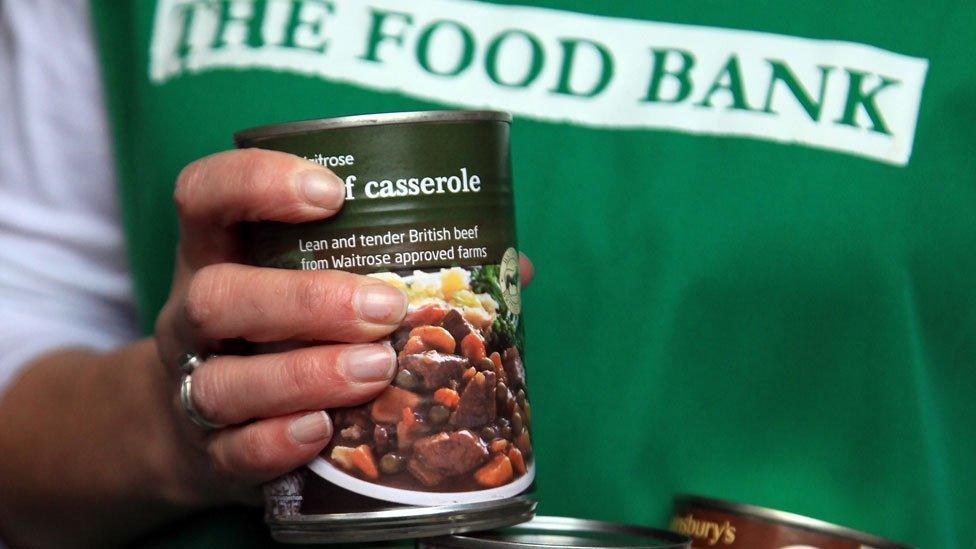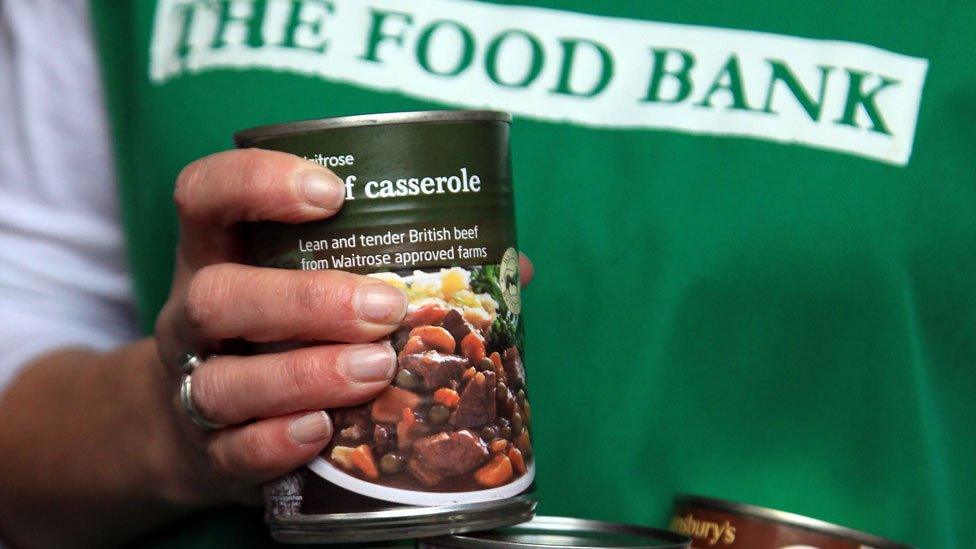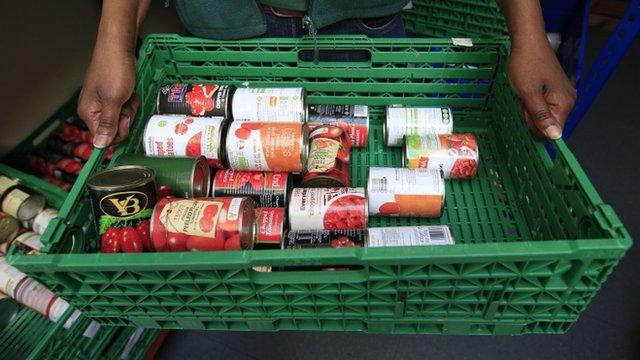Food banks increasing in schools for pupils' families
- Published
- comments

More schools in England are setting up food banks to help feed their pupils' families, according to the biggest school governors' organisation.
The National Governance Association's annual survey found 8% of governors were in schools which had food banks - up from 7% last year.
The highest proportion were in the North East - where 13% of governors were in schools with a food bank.
Heads' leader Geoff Barton said schools faced "rising levels of poverty".
"It is a shameful situation in a country which is among the wealthiest in the world," said Mr Barton, leader of the ASCL head teachers' union.
Washing uniforms
The National Governance Association (NGA) surveyed 6,000 governors about the challenges facing their schools.
School governors, who are often volunteers such as parents or representatives of the local community, warned that funding shortages and teacher recruitment were among the biggest problems.
But the survey also showed the rising challenge of having to offer welfare services to families - such as running food banks, offering meals outside of term time and washing pupils' clothes and uniforms.
Food banks, which provide emergency supplies of food, were most common in schools in the north-east of England, the West Midlands and London - and were more likely in nursery and primary schools than in secondary.
Among nursery school governors, 2% reported their schools were providing emergency loans to parents.
Welfare services
"There is an increasing demand on schools to take responsibility for more areas of children's lives than simply their education," said NGA chief executive, Emma Knights.
"School staff have an increased burden of providing welfare services because of chronic underfunding in other areas and particularly cuts to local authority services," she said.
But relying on schools for welfare services was "not a satisfactory solution".
Head teachers have been warning about the growing pressure on schools to provide much more than academic support.
In a survey of more than 400 schools earlier this year, the Association of School and College Leaders found 43% of schools were offering families help with food.
These were not necessarily running regular food banks, but included schools providing food parcels on a more occasional basis.
Head teachers' leader Mr Barton said schools were becoming a "fourth emergency service providing clothing, food and pastoral support to many young people in extremely difficult circumstances".
"These pupils would not be ready to learn without this support," he said.
- Published25 April 2019

- Published25 April 2017

- Published29 June 2017